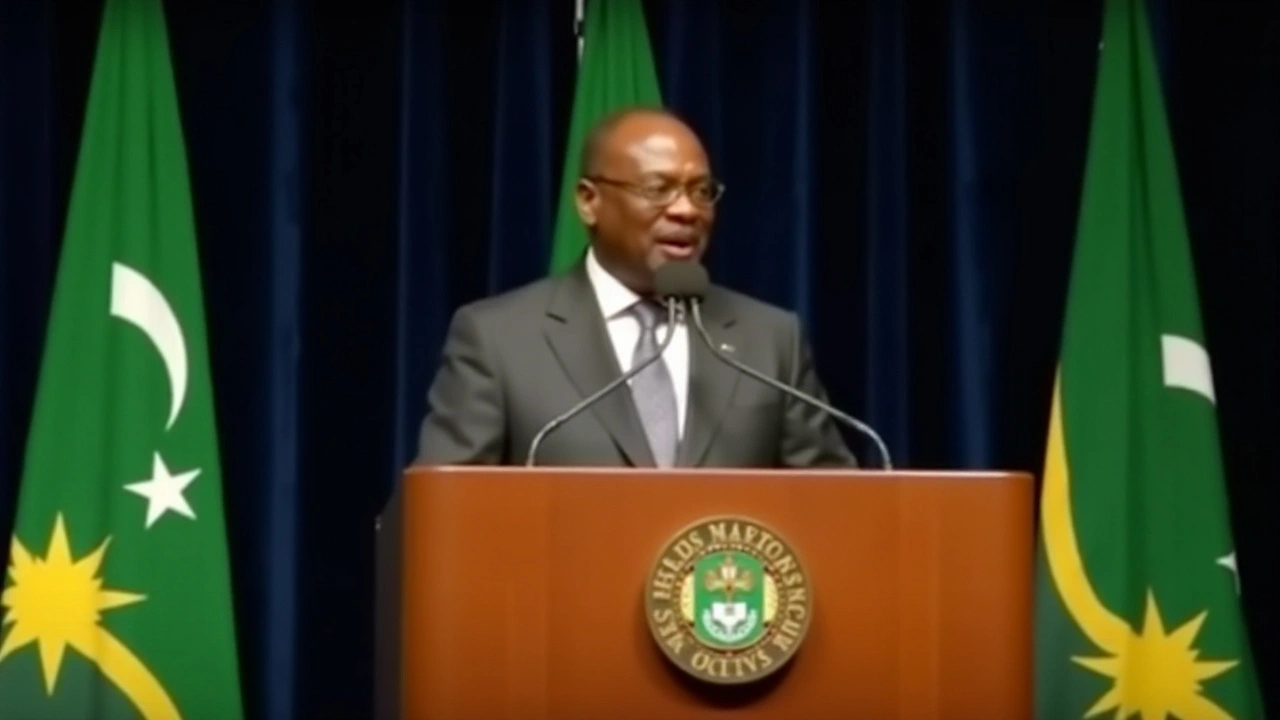Raila Odinga's Candidature for African Union Commission Chairmanship Gains Momentum
The East African Community (EAC) has shown a united front in throwing its weight behind former Kenyan Prime Minister Raila Odinga’s bid for the African Union Commission (AUC) chairmanship. This significant endorsement came during a high-profile gathering at State House in Nairobi, marking the formal launch of Mr. Odinga's campaign ahead of the February 2025 elections. The event was attended by a slew of influential leaders from the East African region, underscoring the substantial regional support that Mr. Odinga enjoys.
Among the dignitaries present were EAC Chairman and South Sudan President Salva Kiir Mayardit, Tanzanian President Samia Suluhu Hassan, and Ugandan President Yoweri Museveni. They were joined by Rwanda's Foreign Affairs Minister Olivier Nduhungirehe, Burundian Prime Minister Gervais Ndirakobuca, and former presidents Jakaya Kikwete of Tanzania and Olusegun Obasanjo of Nigeria. The presence of these notable figures not only from the EAC region but also from other parts of the African continent, signifies a broad base of support for Mr. Odinga’s candidature.
Kenya's Strategic Move
The formal launch of Mr. Odinga's campaign follows the submission of his application in July 2024, part of Kenya's broader strategy to secure this critical continental position. His candidature is seen as a strategic move to place Kenya at the heart of African Union policy-making, particularly at a time when regional integration and cooperation are paramount. The role of the AUC Chair is crucial as it involves guiding the execution of various pro-African Union policies and initiatives.
Mr. Odinga, a seasoned statesman known for his political acumen and dedication to public service, articulated his vision for the AUC with a focus on several key areas, including African integration, infrastructure development, economic transformation, intra-African trade, financial independence, gender equity, agricultural transformation, climate action, peace and security, and youth empowerment. His well-rounded agenda reflects not only his comprehensive understanding of the challenges facing the continent but also his commitment to addressing them in a way that promotes sustainable development.
Regional Endorsement and Competitive Landscape
The backing of the EAC is a significant boon for Mr. Odinga's campaign. The regional bloc's support is crucial as it could sway the decision of other member states in the African Union. Leaders from the EAC emphasized the importance of having a chairperson who understands the intricacies of the continent's socio-economic landscape, and they believe Mr. Odinga is well-suited for the role.
Despite the formidable challenge posed by other candidates, such as Djiboutian Foreign Minister Mahmoud Ali Youssouf and Somalia's former Foreign Minister Fawzia Yusuf Adam, Mr. Odinga's candidacy appears robust, thanks in part to his regional support and credentials. His experience in governance and dedication to pan-African ideals make him a compelling choice for the position of AUC Chair.
Building on a Legacy
The outgoing AUC Chair, Moussa Faki Mahamat, has made significant strides in steering the commission over the past years. With the elections drawing nearer, the focus now shifts to ensuring a smooth transition and continuity in the AU's overarching goals. Mr. Odinga's experience and promise to build on this legacy present a hopeful prospect for the future of African governance. His pledge to enhance African integration and promote economic empowerment resonates with many AU states looking for steady and visionary leadership.
Supporters of Mr. Odinga highlight his track record in public service, his dedication to democratic principles, and his tenacity in championing African unity as reasons why he merits the AUC's top position. His leadership, according to many proponents, will be instrumental in making the AU a more responsive and impactful institution.
A Vision for the Future
Mr. Odinga's outlined vision for the AUC underscores a multipronged approach to development. From promoting intra-African trade, which is essential for economic growth, to advocating for financial independence, his plans are both ambitious and necessary. The focus on gender equity and youth empowerment, in particular, is pivotal for harnessing the continent’s potential. By fostering agricultural transformation, Mr. Odinga aims to address food security, a pressing issue in many African nations.
His commitment to addressing climate change and ensuring peace and security are also critical components of his agenda. The African continent faces unique environmental challenges, and mitigating these through climate action strategies could have far-reaching implications for sustainable development.
Youth empowerment is another cornerstone of Mr. Odinga's vision. With Africa's youth demographic being one of the largest globally, providing opportunities for education, innovation, and employment is essential for the continent's future.
The Road Ahead
As Mr. Odinga embarks on his campaign journey, the support from the EAC offers a strong foundation. Yet, the road to securing the AUC chairmanship is paved with challenges as competing candidates bring their own strengths and visions to the table. The coming months will be crucial in determining who will lead the African Union Commission and guide the continent's future trajectory.
The endorsements from regional leaders show a concerted effort to present a unified front, which could be a decisive factor in the upcoming elections. Mr. Odinga's bid, backed by his extensive experience and clear vision for the continent, aims to resonate with AU member states seeking progressive and dynamic leadership. The journey to February 2025 promises to be a defining period for African politics and governance.



rakesh meena
August 29, 2024 AT 20:53Manjunath Nayak BP
August 31, 2024 AT 15:44Tulika Singh
September 2, 2024 AT 11:14Brajesh Yadav
September 4, 2024 AT 07:35Govind Gupta
September 4, 2024 AT 10:38